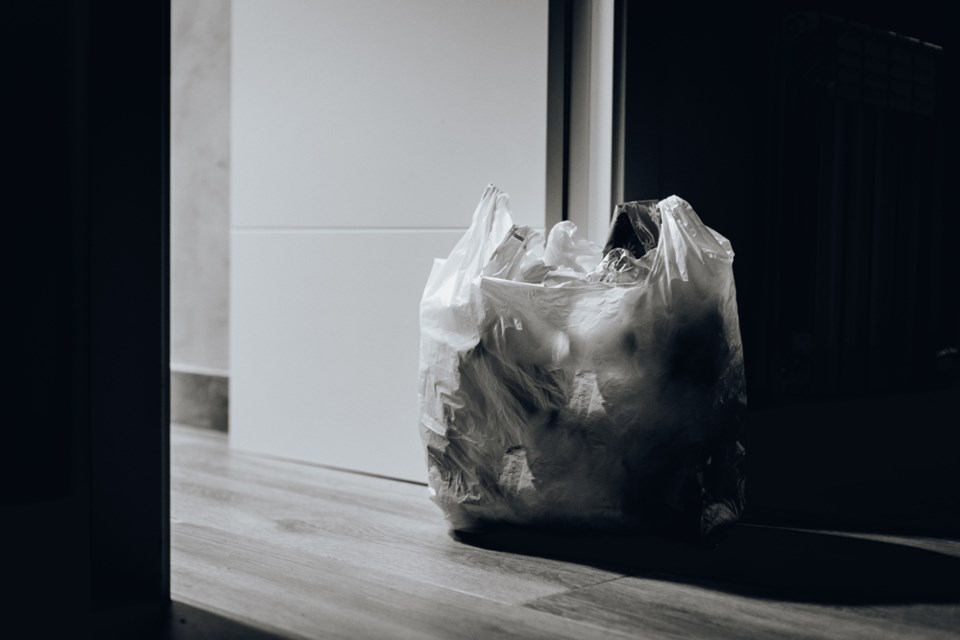District council will be moving forward with their proposed plastics reduction without asking the province for permission, though at least two elected officials were concerned this would open up the municipality to a risk of a legal challenge.
All councillors voted in favour of granting the proposed reduction bylaw three readings during the meeting on Nov. 5.
However, in a separate vote, they were divided as to whether they should seek approval from the Minister of Environment before adopting the bylaw at a future date.
Ultimately, in a split 4-3 decision, council decided the municipality would not seek the approval of the province before adopting the plastics reduction bylaw.
This means that adoption will likely happen in the near future, but could be more vulnerable to litigation.
Councillors Doug Race, John French and Eric Andersen were in favour of waiting for provincial approval.
“We could just adopt it next week and go for it, [but] that may invite a court challenge,” said Race.
He added that litigation could be costly to the taxpayer.
Coun. French agreed, saying he wanted to make a fiscally responsible choice.
Previously, the City of Victoria tried to implement a plastic bag ban, but that effort was stifled in court.
The B.C. Court of Appeal ruled against the capital city’s bylaw because it didn’t seek approval from the provincial government. The city says it will try and bring the case to the Supreme Court of Canada.
A District of Squamish staff report says Tofino, Ucluelet, Qualicum Beach, Courtenay and Cumberland have adopted similar bylaws without approval from the Minister of Environment.
On the other hand, Richmond and Saanich decided to wait for provincial approval before adoption, the report says.
However, Mayor Karen Elliott said the District was well within its right to pass a plastics reduction bylaw without provincial approval.
“We’re not implementing a ban,” said Elliott. “We’re implementing a common-sense approach to regulating business transactions, and you can still get a plastic bag in Squamish after this is adopted. You can get a paper bag. But it is not an outright ban. And so, I feel like what we are doing is within our ability to regulate.”
Coun. Jenna Stoner noted it could be a long time before the province responded, which, should the District wait, would create significant delays in implementing the bylaw.
While the municipality originally hoped to ban plastic bags and straws, the District will instead implement a reduction.
In an effort to accomplish this, Squamish is imposing fees that generally target checkout bags at retailers and other stores.
Under the proposed fee structure, 10 cents would be levied for plastic bags, 30 cents for paper bags and $1.10 for reusable bags. District staff previously said money raised from fees would be kept by the businesses.
Elected officials shifted their plans after staff told them that banning plastic bags could result in a greater consumption of paper bags, among other things, which require more resources to manufacture.
As a result, banning plastic bags could inadvertently create a larger carbon footprint, staff said.
Plastic straws will not be banned, and will still be kept in stores to allow people with disabilities to access them.
The plastic reduction bylaw will not apply to what are called exempt items.
Some examples include packaging for loose bulk items, meat, poultry, fish, prescription drugs and newspapers, among other things.
However, the exemption for newspaper plastic packaging will expire 90 days after the bylaw comes into effect.
Several councillors said that newspaper delivery bags are a large contributor to waste.
It’s unclear exactly what will happen to newspaper bags once the exemption expires. Some councillors suggested banning them, while French suggested a pay-in option, which would give residents the option to pay a fee to have their paper delivered in a bag.
Staff said they would research the matter.
The Chief’s publisher, Sarah Strother, said the newspaper has paid a premium to purchase biodegradable bags and that it will be looking to work with the District.
However, according to the municipality, those bags aren’t recyclable in its system.
District staffer Keely Kidner previously wrote to The Chief’s circulation manager that the bags either end up in recycling, where they can’t be processed or littered due to the perception that they are biodegradable. Conventional plastic bags are recyclable at depots — though not in blue bins, Kidner wrote. “From a waste management perspective, this would be the better option.”



